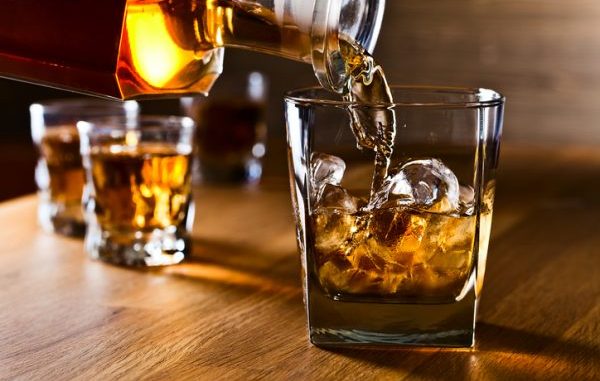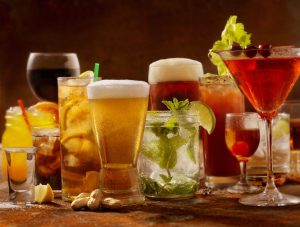
Alcohol usage went way up this past year and it’s pretty easy to see why. There was this pandemic that kept us all home, for one thing. Stress levels were high with kids and spouses all at home trying to work and study. And hey, it’s not difficult to just walk a few feet over to the fridge and pull out a beer with lunch or pour yourself a glass, or two, or three of wine. No worries about drunk driving, and hey–it’s a whole lot cheaper than ordering drinks in a restaurant.
I get it. It happens to the best of us. That slow and steady slippery slope. Before you know it, ‘Happy hour’ starts at 3pm and continues as long as you want it to.
According to a recent study published in JAMA Network Open, more people than ever used alcohol to cope with career, social, healthy and financial uncertainty and stress.
The study’s researchers found that alcohol consumption among adults increased 14% from 2019 to 2020. And women, in particular, exhibited a whopping 41% increase in heavy (four or more drinks in a 2-hour period) alcohol consumption last year over 2019.

There’s really nothing good that comes from excess drinking. Drinking does nothing good for your health.
With heavy consumption, alcohol can lead to damage to the liver, heart, brain, and many other organs in the body.
But even moderate consumption can wreak havoc on hormones, causing an increase in estrogen in both MEN and women!
In men, alcohol will cause testosterone to convert to estrogen, leading to low libido, ED, weight gain, man boobs, even shrinkage!
Drinking also has negative effects on women’s hormones. In women, alcohol will also cause a rise in estrogen, but this is not necessarily a good thing. Women who are in mid 30s, 40s and 50s, will find they can have an overabundance of estrogen, creating condition called estrogen dominance. Estrogen dominance comes with its own problems including:
- Heavy periods
- Weight gain
- Endometriosis
- Depression/Anxiety/Irritability
- Low Libido
- Increased risk of breast and endometrial cancer

Excess estrogen also interferes with thyroid function and can slow the thyroid, creating symptoms of hypothyroid.
And for women who are on Hormone Replacement Therapy, alcohol can increase the amount of estrogen in the body by up to 300%, while decreasing progesterone. If you wonder why your HRT may not be working or why you are still gaining weight, it may have to do with your alcohol intake.
One other thing about alcohol—if you are dealing with menopause symptoms, drinking increases hot flashes and night sweats.
One other hormone that alcohol affects—cortisol. Alcohol consumption has been shown to increase cortisol in the body Cortisol is the hormone released by the adrenals when you are stressed. Excess cortisol comes with another range of unpleasant side effects including:
- Insomnia
- Stress
- Food cravings/Weight gain
- Anxiety and depression
- Increase in blood pressure
- Decrease in ability to focus
- Increase in blood sugar, insulin resistance
Alcohol also interferes with thyroid function, causing a decrease in T3, T4 and thyroid stimulating hormone (TSH) production. This creates a hypo, or low thyroid reaction to alcohol. Hypothyroid symptoms include:
- Weight gain, bloating
- Extreme fatigue
- Depression
- Hair loss
- Slowed thinking
- Decreased libido

Two other necessary hormones that alcohol doesn’t play well with—melatonin, our sleep hormone, and growth hormone. Alcohol inhibits the release of melatonin. And because growth hormone is released during our sleep, alcohol drinking reduces growth hormone release.
Human Growth Hormone or (HGH) is important for growth, cell regeneration, and cell reproduction. HGH helps to maintain, build, and repair healthy tissue in the brain and other organs.
This hormone can help to speed up healing after an injury and repair muscle tissue after exercise. Growth hormone helps to build muscle mass, boost metabolism, and burn fat. And HGH is also said to benefit the quality of the skin to help us look younger. HGH slows down the aging process.
One last thing, drinking not only makes you hungrier, but it also makes you lose your ability to control what you are eating. Before you know it, you are ordering that large order of French fries or mowing through that box of cookies. Not a great way to stick to a healthy diet.
Alcohol adds to depression and anxiety and it messes up your gut microbiome which affects everything–including your immune system!

Drinking makes your skin look pale and sallow. Drinking will also contribute to dehydration while draining your body of important nutrients—especially B vitamins B-l (thiamin), vitamin B-3 (niacin) and folate, as well as zinc and magnesium.
All that being said, I just want to say, it is OK to enjoy a drink now and then, so let’s talk about how to drink LESS and to stay in control if and when you have a drink.
First--Don’t reach for that wine glass as soon as you finish work. Start learning to associate a new ‘reward’ for the end of your day. Go for a short walk to relax. Do some yoga, play outside with the kids, stretch, meditate. It’s important to replace your drinking with something positive. Otherwise, you’ve just left a hole in your routine. Put something you look forward to in that place.

Find an a non-alcoholic or low-alcohol drink. I love mixing sparkling water with kombucha and adding a lime garnish. It’s delicious and refreshing. Or try some of the new hard seltzers or hard kombuchas. They are delicious and light with about half the alcohol of a normal beer or glass of wine.
Here’s an important one—don’t drink alcohol when you really should be drinking water. Often we are just thirsty and need a glass of water or something to hydrate with. So drink a great big glass of water before you have a drink. And when you do order a drink, order a glass of water or sparkling water to go with it. You should end of drinking half as much.
Learn to sip your drink and enjoy it, don’t guzzle it waiting for the alcohol to hit your system. Be mindful. And it helps if you order a drink that you have to sip slowly, like tequila, red wine, vodka on the rocks—anything that isn’t sweet.
And most importantly, have an accountability partner like a spouse, girlfriend/boyfriend or good friend. Let them know you want to cut back on drinking and have them help you out with that. It’s best to avoid people who are heavy drinkers, because willpower ends up going out the window. It’s tough to stop when everyone else is drinking. Be mindful of the people you hang around with.

It’s not that difficult to cut back on drinking. It’s just a matter of being MINDFUL of what you are doing, paying attention to the health risks, and take the above steps to deal with it. If you find you are drinking out of control, or if it is affecting your family or career, it’s time to ask for professional help. There is no shame in taking back control of your life.
Cheers, to you and your health!
